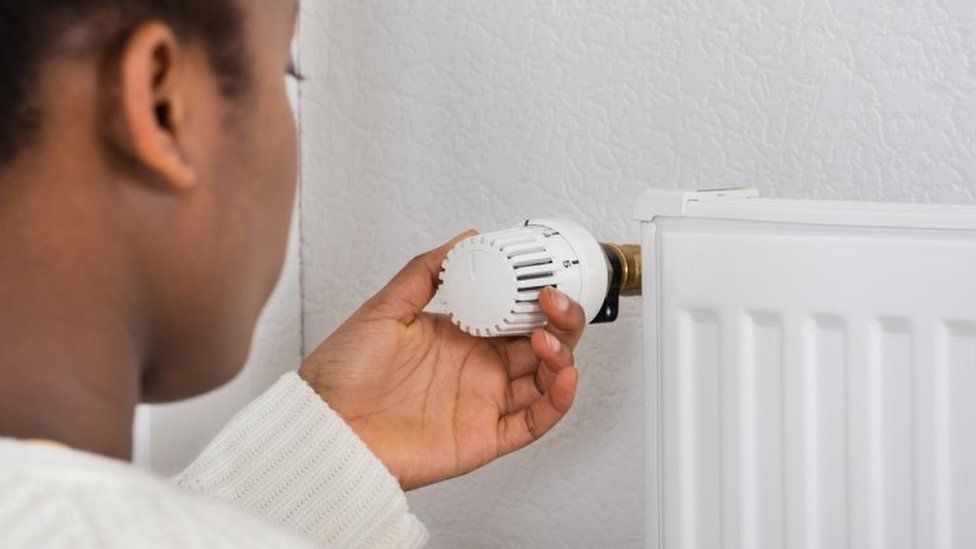ARTICLE AD BOX
 Image source, Getty Images
Image source, Getty Images
The government wants to increase the reach of its energy-saving advice
By Joshua Nevett
BBC Politics
Rishi Sunak's government is drawing up plans to expand a public information campaign aimed at helping households reduce their energy use this winter.
A website has already been launched with tips such as switching off radiators and turning down boilers.
A government source told the BBC plans to step up the campaign were in the "design phase".
The cost of the publicity blitz has yet to be revealed but ministers say they want to keep it to a minimum.
A Times report suggested the campaign could cost £25m and would involve broadcast adverts, social media messaging and online advice.
The newspaper suggested celebrities would be recruited to deliver money-saving advice, but government sources have said this was "unlikely".
The governments of Germany, France and other European countries have been promoting similar campaigns to save energy, but the UK has been slow on the up-take.
Former Prime Minister Liz Truss was reported to have been "ideologically opposed" to such a campaign, fearing it would be too interventionist, or "nanny state".
But her government rowed back on that position last month and said it was considering how to expand the existing Help for Households website.
Ms Truss's successor as PM, Mr Sunak, and his ministers appear to be more comfortable with steering people towards advice on how to reduce their energy consumption.
Speaking to the BBC on Thursday, Housing Secretary Michael Gove said: "What we will be doing and should be doing is pointing people towards authoritative sources of advice on how to minimise energy usage."
The government says the Help for Households website includes simple actions people can take to save further money on their energy bills if they wish to.
- Reducing the temperature of boiler flow to save about £100 per year
- Turning down radiators not in use to save about £70 per year
- Draft-proofing windows and doors to save about 70 per year
A government spokesperson said while everyone has different energy needs, "we recognise that people may be interested to learn more about how they can further cut their bills".
"Our existing public information campaign, Help for Households, is driving up the public's awareness of all the support available to help them with the cost of living, including saving money on energy bills. We continue to look at ways to further promote energy savings," the spokesperson said.
The government has capped the amount per unit of energy suppliers can charge consumers so that a typical bill remains at £2,500 a year until the end of March.
But help with energy costs will be less generous from April, with bills for a typical household going up to £3,000.
The Office for Budget Responsibility says total support for energy costs is expected to cost the government £43.2bn this year.
To cut costs at a time of economic downturn, Mr Sunak's government has introduced a drive to reduce household energy consumption.
In his Autumn Statement this month, Chancellor Jeremy Hunt announced plans shave £450 off the average household bill by increasing the energy efficiency of homes and businesses.
He said a further £6bn would be made available to fund improvements in energy efficiency from 2025.
Homes in the UK among the worst insulated in Europe, leaving the country exposed to the high heating bills expected this winter.
On Wednesday, Mr Hunt described cutting energy use as a "national mission" to stop the UK being "blackmailed" by the likes of Russian President Vladimir Putin.
The war in Ukraine has tightened supplies of gas, which the UK is heavily reliant on for heating and powering its homes and businesses.
Mr Hunt told MPs "in the end everyone is going to have to take responsibility for their energy bills" and consider how to cut their consumption.

 1 year ago
20
1 year ago
20








 English (US)
English (US)